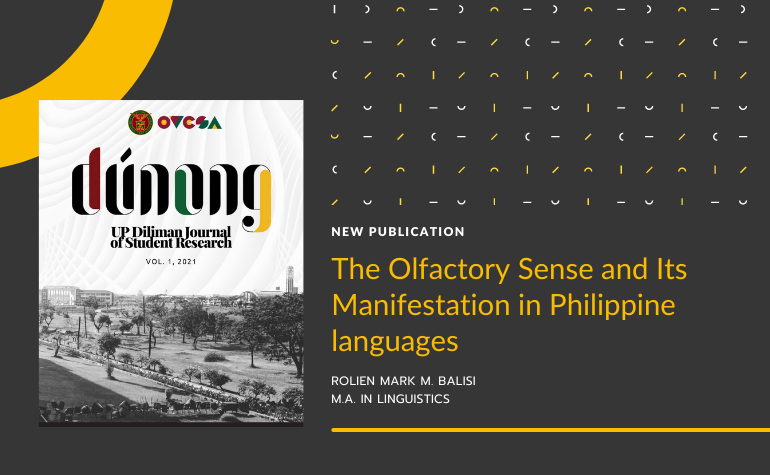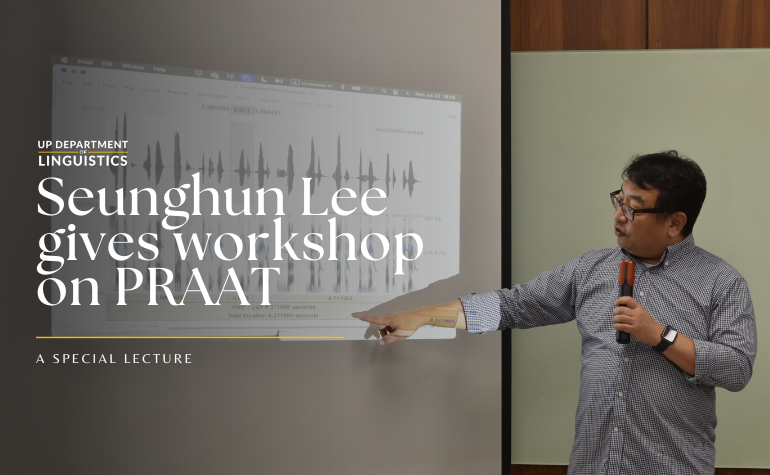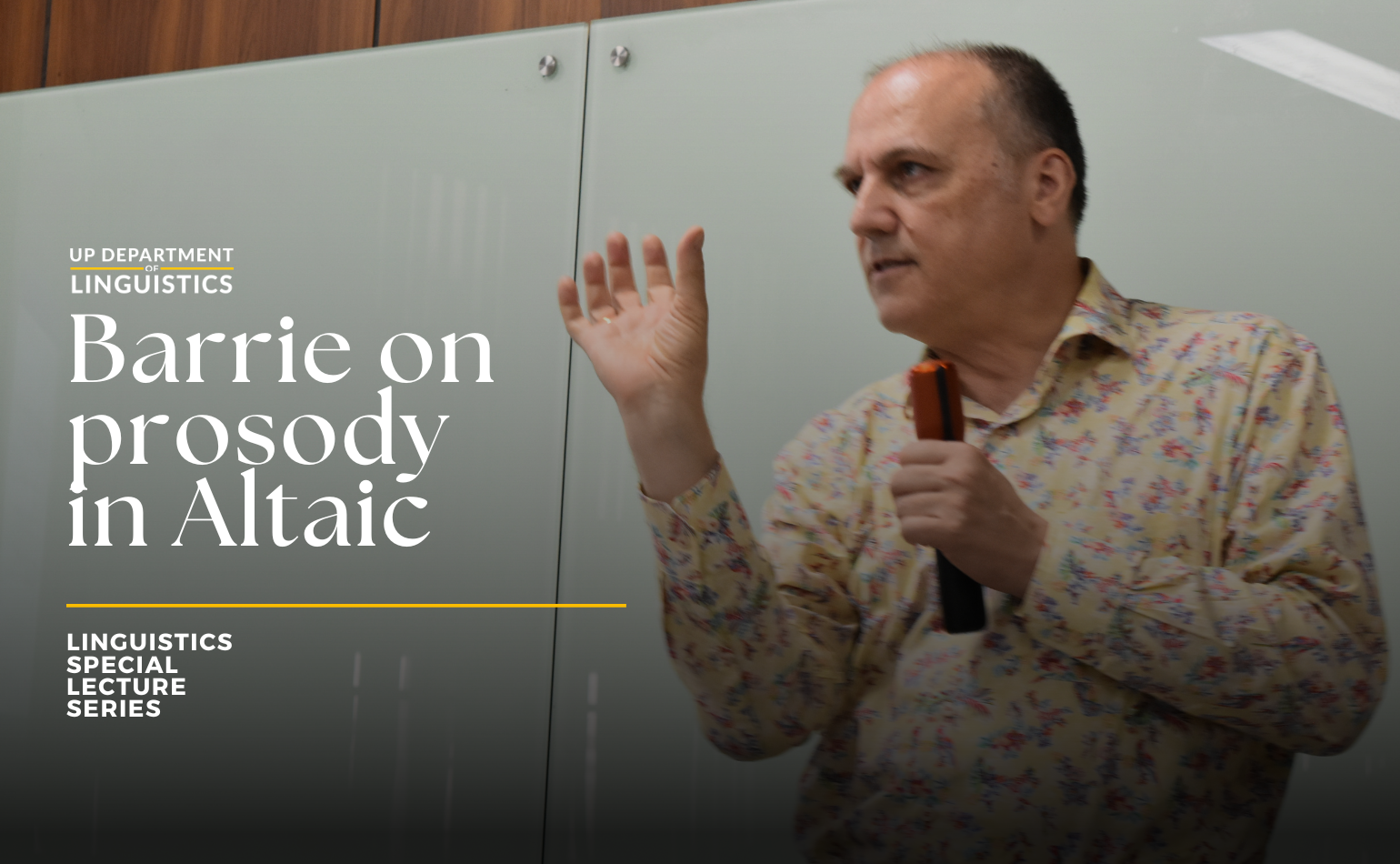
Congratulations to MA student, Rolien Mark Balisi, on the publication of his paper “The Olfactory Sense and Its Manifestation in Philippine Languages” in the inaugural issue of Dúnong: The UP Journal of Student Research. Below is the abstract of the study:
The Olfactory Sense and Its Manifestation in Philippine Languages
As an archipelago composed of numerous islands, the Philippines can be synonymous with diversity. The country’s scattered geography has led to the diversity of people, with their unique environments affecting their cultures and languages. An article by Michael Tan (2018) titled “Smellscaping” in his column “Pinoy Kasi” briefly describes the existence of the many “smell words” embedded in Philippine languages and their shared connection with other Southeast Asian and Pacific cultures. Tan noted the contrast between “smell cultures,” such as the Philippines and its Southeast Asian and Pacific neighbors; and “non-smell cultures,” like most of the English-speaking Western parts of the world—where smells are somehow limited to “nice” (i.e., fragrant, pleasant) and “not nice” (i.e., smelly, stinky, foul); as supported by an article by Ed Yong (2015) titled, “Why Do Most Languages Have So Few Words for Smells? And Why Do These Two Hunter-Gatherer Groups Have So Many?”
To investigate these phenomena, several studies were conducted to record and understand these “smell cultures.” A study titled, “Odors are Expressible in Language, as Long as You Speak the Right Language” by Majid and Burenhult (2014) observed the Jahai people of the Malay Peninsula and discovered that these nomadic hunter-gatherers have a proficient vocabulary in describing numerous odors in their native environment. In “Revisiting the Limits of Language: The Odor Lexicon of Maniq,” Wnuk and Majid (2014) studied the speakers of Maniq, a language spoken by a small population of nomadic hunter-gatherers in southern Thailand. Over a dozen of Maniq smell terms have complex meanings, and semantically exist in two dimensions, namely pleasantness, and dangerousness. Moreover, these smell words are tightly connected to the community of the speaker’s cultural constructs.
The full paper can be read and downloaded from the journal’s website. The UP Diliman Office of the Vice Chancellor for Student Affairs (OVCSA) will formally launch the maiden issue of the journal on May 18, 2022 (Wednesday). A short program for the launch of the journal will be streamed on the same date at 4:00PM via Facebook Live. For more information, visit the OVCSA’s Facebook page.
Published by UP Department of Linguistics



